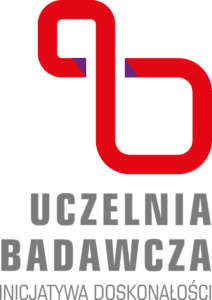Abstract:
„Dating online through either websites, phone apps, or online social networks is now both common and socially endorsed (Bergström 2012; Smith 2016). In certain contexts (e.g., U.S.), it has even recently become the number one way of meeting partners (Rosenfeld et al. 2019). Social scientists have already pointed out some of the social transformations brought about by online dating. Internet-matched heterosexual couples for instance experience faster transitions into marriage (Rosenfeld 2017), and display less homogamy in terms of socio-demographic background (Potarca 2017, 2020; Thomas 2019). Though so far unexplored, an additional anticipated transformation is the challenging of gendered relationship practices (Hardey 2002). Despite advances in women’s education, labor force participation, and earning power (England et al. 2020), and nearly universal preferences towards equity in the allocation of housework (Auspurg et al. 2017), women still do more housework than men (Geist and Ruppanner 2018; Hu 2019).
Through its unique features (e.g., larger choice set, conditions of anonymity, compatibility matching), online courtship might allow individuals, especially women, to better negotiate dating scripts and potentially bypass normative relationship expectations of female partners carrying the load of housework. Within a space that allows for more fine-tuned choices, individuals could reject conventional gendered norms in an effort to construct intimacy outside of socially sanctioned practices. By providing increased information on potential candidates than usually available in face-to-face meeting contexts, the online marketplace could establish itself as a partnering space where women select men on non-economic considerations (Press 2004), such as good communication skills or ability to provide emotional support (Lawson and Leck 2006). Given the link between high levels of emotional intimacy and partnership communication quality, on the one hand, and the equal allocation of housework, on the other hand (Carlson et al. 2020; Komter 1989), the result would be online daters crafting more egalitarian relationships than those selecting partners in conventional ways.
To test this hypothesis, the current study uses up-to-date panel data on married adults (N = 2,243 individuals, n = 6,418 observations) from Germany – pairfam waves I‑XI (2008 to 2019) – and inspects the link between meeting context and the probability of engaging in an egalitarian division of household labor as opposed to the traditional arrangement in which the wife takes over all or most of the charge. We specifically examine the allocation of housework, a highly gendered, traditionally female-performed task (Hook 2017). We also examine gender and social class differences (defined by level of education), and account for mechanisms of social homogamy as well as various sources of online dating selectivity.
The study provides the first quantitative and nationally representative evidence of whether online dating transforms gendered practices in marriage. Particularly on the backdrop of a stalled gender revolution (Cotter et al. 2011; England 2010; Goldscheider et al. 2015), in a context known for the persistence of the male breadwinner and the one-and-a-half earner models (Esping-Andersen 2018; Hook 2015), and where high-earning women often engage in gender-compensatory behavior (Procher et al. 2018), it is important to inquire whether the Internet as alternative public space assists adults in deconstructing traditional family models in general, and gender-asymmetric scripts of dividing unpaid work within marriage in particular. In other words, we seek to identify whether advances in the digital revolution can serve as tools in advancing the gender revolution.
First results based on random effects modeling indicate that lower (and not higher) educated women who met their partner online do engage in a less traditional split of housework. The results are largely related to selectivity (e.g., in terms of gender values), but also, as predicted, better matching on emotional attributes.






